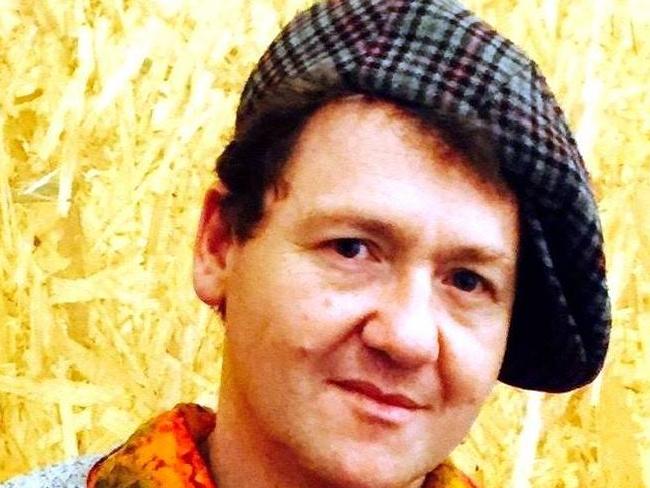
Death and eroticism are intertwined, according to the director of a Sydney festival about death and dying.
MOST people find the concept of death depressing or heartbreaking, but the director of a new Sydney festival says others find it erotic.
Peter Banki launched the Sydney Festival of Death and Dying on Friday at Rushcutters Bay. The three-day event turns a traditionally taboo subject into something more playful, where our own mortality is discussed in eye-opening, often confronting ways.
There’s a topic on how long a grieving person can keep a body in their house. There’s another exploring suicide and one more about the vivid end-of-life dreams experienced by those closest to death.
But Dr Banki says one workshop is far and away the most popular, particularly with young people.
“There’s been heaps of interest, plenty from young people, some in their teens and early 20s. Even people at school age have wanted to come,” he told news.com.au.
“It depends on the individual but younger people are really interested in the sexual side of death.”
They’ll get plenty out of the Thresholds and Lust workshop running from Friday-Sunday, where anything goes.

Death is being explored from all angles this weekend in Sydney.Source:Supplied
The workshop is described on the festival website as “an opportunity” to explore, in a “safe, consensual and risk aware” environment.
“The proximity to death is not necessarily negative, it can be that which gives us the feeling of being most alive,” the website reads.
“Death touches us not simply as ‘a fact of life’, but also as a fantasmatic object of desire. Many people, consciously or unconsciously, search for limit-experiences for the intensity and thrill of being on the threshold of something that gives them the feeling of being close to death.”
Dr Banki explains further.
“It takes a point of departure that the feeling of being close to death sometimes gives us the feeling of being most alive.
“We wanted to explore certain erotic techniques that give people a feeling of joy. It’s normally thought of as painful and frightening and lonely, but these things can be a source of pleasure.”
So, how does it work? What are the people blurring the line between death and sexuality into?
“You might feel like somebody choking you,” Dr Banki said, referring to what’s known as erotic asphyxiation. The person on the receiving end is often referred to as a “gasper”.
“There can be quite a thrill in that. You can put a mask on someone, and make it a bit more difficult for them to breathe. When you’ve got a bit of constriction, your chest opens.
“You might tie someone up. Give them a feeling of being immobile. When you’re dying you’re immobile and people like that connection.
“Another example might be you can put someone in a (body) bag and cover them. It’s about sensory deprivation.”
Of course, you don’t want to push it too far, he says.
“It has to be learnt. Breath play is quite risky. Life and death are not separate. Eroticism is a strong expression of vitality. It makes us aware that life and death are intertwined.”

Festival director Peter Banki. Picture: FacebookSource:Facebook
The festival is the brainchild of Dr Banki, an associate member of the Philosophy Research Initiative at the University of Western Sydney. He also hosts the Festival of Sexuality which gets under way next year.
Victoria Spence, a celebrant, played a role in launching the 30-strong workshop festival, too.
She told ABC’s AM program there are some fundamental aspects of death and dying that people don’t understand because they’re either too afraid to ask or have never been told.
One of those things is her controversial new technique for preserving a person’s body inside the home after death — a cool bed she delivers to people’s homes.
“In NSW, many people don’t know this, but you have five days — health regulations allow five days — for you to keep your person at home. My practice is I come in with my cool beds just to allow people to literally take a breath ... after this really big dying and death and all of the intensity that comes with that.”
She admits it’s not for everybody.
“Because it’s a brand new idea, when they first encounter it most people have a bit of a knee-jerk reaction and ... it’s just not familiar.”
A lot taking place at the Sydney Festival of Death and Dying is not familiar, but Dr Banki says that’s a good thing.
“We wanted to create a festival that informs people about death and dying and gives the community more choices but also integrates artistic approaches to the topic.”
He’s certainly achieved that.
For information or tickets, visit deathfestsyd.net








